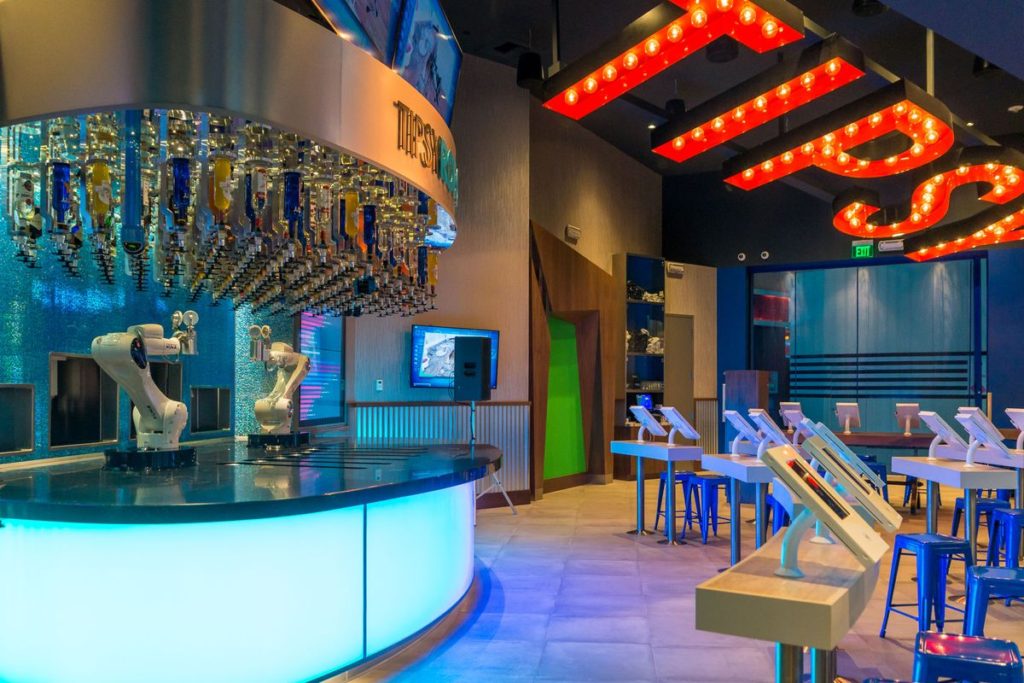Up until June 3rd, about 25,000 MGM Resorts International employees were ready to go on strike and cause a major disruption to business along the Vegas strip. The company and the Culinary Workers Union Local 226 were able to reach a tentative agreement that will keep casinos open and employees off the picket line for now, but this latest dispute is indicative of a larger issue that Las Vegas and other gambling centers around the world will need to address in the coming years. Casino workers are facing increasing job insecurity as technology and automation replaces workers and this is creating serious unrest and conflict that will only continue to build.
Things first came to a head with the expiration of the existing contract, which was set to end on June 1st and negotiations for a new five-year contract seemed to be going nowhere. While the negotiations have covered wage increases and workload limits, they have also been used to express concerns about industry wide automation that is replacing workers with robotic technology. According to recent studies, casino workers have good reason to be concerned. In the next 15 years alone, 47% of all U.S. jobs will be at risk of being taking over by artificial intelligence and other automated technology. When researchers looked at just the Las Vegas job market, that number jumped to 65.2%, which means that over half of Vegas workers could lose their jobs despite steady industry growth.
Robots are Taking over Las Vegas
One sign of things to come is the Tipsy Robot bar located in the Planet Hollywood Casino. While the theme of the bar was designed to create a fun customer experience, you can imagine that it is unsettling for bartenders to see robots creating perfectly poured and proportioned drinks at the rate of 120 drinks per hour. The robots even dance and entertain customers.
Robots are also taking over concierge and room service duties. Interactive robots can provide directions, information about local destinations and hotel services and wayfinding maps. Customers can also digitally place food and drink orders and their room service will be delivered by a robot. Clearly, the technology is available and hotels and casinos are beginning to embrace its capabilities and incorporate automated solutions into their business model.
How Can Casinos Protect Human Jobs?

Of course, the big drawback of relying more heavily on robots is the human factor. People will lose their jobs. Should casinos hold on to increasingly antiquated business processes just to save jobs that will only become increasingly obsolete as technology continues to advance at such a rapid pace? It is a tough question that simply isn’t going to go away.
Casino workers unions are making the argument that technology can be incorporated without totally eliminating human interactions. According to the Culinary Union Worker’s secretary-treasurer, “We support innovations that improve jobs, but we oppose automation when it only destroys jobs.” Another spokesperson made the point that workers should be retrained instead of completely laid-off and discarded. While this would certainly be an ideal solution, it remains to be seen whether retraining is part of the casino industry’s long-term plan for phasing new technology into all aspects of their businesses.
With all this talk of job losses, automation can begin to seem like a dirty word, but it is important to remember that much of this technology actually improves lives and makes businesses more efficient. For example, Casino Schedule Ease is a popular software scheduling program that streamlines and automates certain administrative tasks and ensures that employees are able to work their ideal shifts and easily request time off. In this instance, technology eases the burden on managers and improves the workplace for employees. Ultimately, this also creates a better customer experience. In this case, automating specific tasks benefits everyone involved.
Essentially, casinos and businesses across all industries, are being faced with a digital revolution and the way they handle it will have lasting consequences. Without a transition strategy, the switch to automation will feel sudden and brutal. However, there is the option to slowly and deliberately incorporate new technology as workers are retrained and given new employment opportunities. If nothing else, hopefully, these negotiations have made it clear to both workers and casinos that the tides are turning and now is the time to prepare for a future where robots and AI will replace workers. There is simply no use in continuing to fight this reality. Instead, everyone involved needs to acknowledge what is at stake and start developing a strategy that will protect workers while also embracing technology.
Where Negotiations Currently Stand

As it stands, MGM workers were able to reach a tentative agreement that provides an immediate raise along with yearly wage increases for the next five years. However, another approximately 25,000 workers, who belong to other unions and help keep 25 hotels running, have yet to reach a final deal and could still go on strike. There is no set day for the strike, but if it happens, it would be the first strike in the city since 1984.
For the City, a strike couldn’t come at a worse time. The Vegas Golden Knights have made the Stanley Cup play-offs in their first season in the league. The rest of the strip is also experiencing one of the most profitable periods in recent memories as more people are enjoying disposable income and taking advantage of all the city has to offer. A strike would end up costing hundreds of millions of dollars a day, which gives workers some pretty strong negotiating leverage.
The tension between employees, businesses and technology is one that is happening in industries all over the world, but the recent contract negotiations in Las Vegas helped bring this problem further into the light. While it looks like things may be quieting down on the strip, there are still contracts being negotiated and the MGM agreement only spans five years. It is also clear that robots will become increasingly visible and workers won’t be able to fight off the changing nature of the workforce for much longer.
